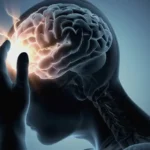ADHD can create challenges for children by affecting attention, memory, and self-control. It stems from differences in brain development that may also lead to hyperactivity and difficulty regulating behavior. The condition presents in three types, each with distinct patterns and behaviors. Here are a few factors to help with recognizing co-occurring conditions in children with ADHD:
Inattentive ADHD
Inattentive ADHD primarily affects a child’s ability to maintain focus and sustain attention over time. Children with this presentation may struggle to complete tasks, follow multi-step instructions, and often appear absent-minded. Daydreaming or moving slowly through activities can contribute to these behaviors.
They frequently overlook directions, miss details, and may have difficulty organizing work or managing time, making routine tasks and schoolwork more challenging. These patterns of inattention can affect learning, social interactions, and daily functioning. Supportive strategies, patience, and understanding can help children navigate these challenges more effectively.
Hyperactive ADHD
Hyperactive ADHD is characterized by excessive movement and difficulty remaining still. Children with this type may fidget, leave their seats frequently, or talk excessively, making it challenging to stay calm in structured settings. They often rush through tasks, which can result in careless errors and incomplete work.
Other signs include interrupting conversations, intruding on others’ activities, and struggling to wait their turn. These behaviors can disrupt classrooms, group activities, or home routines. Recognizing these patterns early can help caregivers and educators provide guidance and structure to support the child’s daily functioning.
Impulsive ADHD
Impulsive ADHD is marked by actions taken without forethought, which can affect a child’s interactions and daily activities. Children with this type may frequently interrupt conversations, act impatiently, or display sudden emotional reactions. They might also engage in risky behaviors or show aggression, sometimes without understanding the consequences. Recognizing these signs helps caregivers and educators provide support, guidance, and structure to manage impulsive tendencies effectively.
The Diagnostic Process
A clinical diagnosis of ADHD involves a comprehensive evaluation using specialized tools to identify areas that need attention. These assessments provide a detailed picture of a child’s strengths and challenges, guiding appropriate interventions and support. Treatment often combines therapy and, when appropriate, medication to help children manage behaviors and develop skills that support daily functioning.
- Academic achievement: Evaluates learning progress
- Attention and concentration: Measures focus during tasks
- Executive functions: Assesses planning, organizing, and self-regulation
- Intellectual functioning: Examines reasoning and problem-solving
- Language processing: Looks at comprehension and communication
- Motor speed and strength: Test coordination and physical responses
- Planning and organizing: Evaluates task management
- Sensory-perceptual functions: Assesses responses to sensory input
- Speed of processing: Measures how quickly information is used
- Verbal and visual memory: Tests recall of spoken and visual information
- Visuospatial processing: Assesses interpretation of visual information
Therapy helps children develop social, emotional, and organizational skills, while medication may assist in managing attention and impulsivity. Ongoing support and monitoring allow adjustments to keep interventions aligned with each child’s evolving needs.
Finding Support for Your Family
Parent coaching helps caregivers respond effectively to behavior challenges while providing strategies for supporting children at home. Schools can also benefit, as teachers receive guidance to assist students in managing symptoms and improving engagement. Understanding ADHD and related conditions gives families the knowledge needed to navigate daily challenges and support their child’s growth. Schedule a consultation today to explore professional evaluation and personalized strategies for your family.







